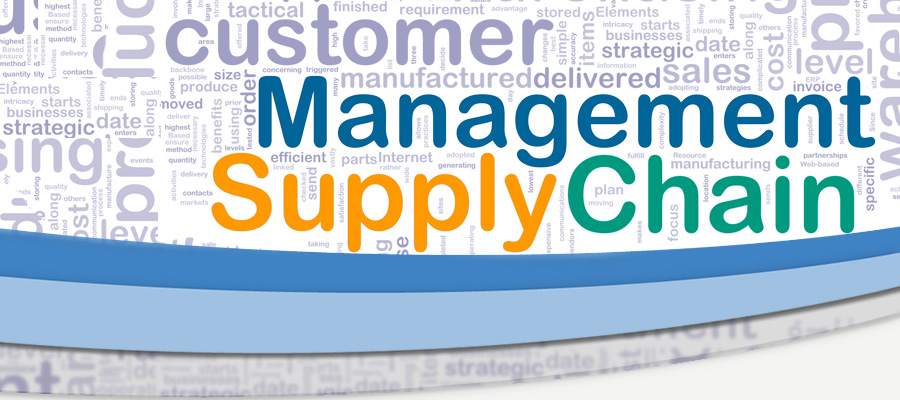News You Can Use: 1/4/2017

- Ethical Sourcing: Do Consumers and Companies Really Care?
According to Steve Polski, senior director of responsible supply chains and sustainability at Cargill, consumers consistently say they want more sustainable products and services but are often unwilling to pay a premium. Polski has spent years researching this topic, and he has found that consumers care about a company’s sustainability and ethical sourcing efforts and may reward it with brand loyalty, but they generally don’t want to pay more for the products.
Also:
The survey also found just how much consumers said they were willing to pay for ethically and sustainable sourced products. Thirty percent said they would pay up to 5% more and 28% said they would pay up to 20% more for such products. A quarter of consumers also said they actively sought sourcing origin information when they made their most recent purchase.
- Why Your Annoying Boss Micromanages You
The Science of Us explains that, like most people, when you feel powerless or helpless, your first instinct is to exert control over the things you do have some control over, and if you’re a boss or manager, that might mean your employees. While we know that most people work best when they’re given independence and autonomy, and when managers trust their teams to make the best calls when they need to, well, sometimes good old psychology just takes hold.
http://lifehacker.com/why-your-annoying-boss-micromanages-you-1790380406
- Simon Sinek on Millennials in the Workplace
This fellow is a little smug, but he makes some really interesting points. - 3 Predictions For Apple’s Supply Chain In 2017
China isn’t the only Asian country Apple could continue to work with. The Wall Street Journal reported that it may manufacture products in India and could be currently working toward a deal for this with the Indian government.
However, this seems to be more of a matter of speculation and deduction than pure fact, since Apple did not comment and Tim Cook, the company’s CEO, openly said that there were no plans to start producing in the country earlier this year.
Forbes contributor Tim Worstall also pointed out that most of the benefit would go to Apple, with the Indian economy itself not gaining too much from the company’s presence there. This sits in contrast to Apple’s work in China, which also benefits the country in addition to the business’ sales themselves.
http://www.strategicsourceror.com/2016/12/3-predictions-for-apples-supply-chain.html
- 7 things Silicon Valley needs to stop doing in 2017
Stop acquiring companies and products just to kill them:
Some of the greatest apps and sites ever created were acquired as they were rising in popularity, then terminated. Remember Posterous, Pownce, Dodgeball, reMail, Nextstop and Friendfeed? These were all innovative, powerful, well-designed apps or services that were terminated on purpose because they were so good.
Photo: Anchor Lee
The Supply Chain: 3/11/2015

- Here is apple’s entire supplier responsibility standards document. It clearly addresses all of the Chinese factory supply chain issues they have faced over the last 6 years. Interesting read:
https://www.apple.com/supplier-responsibility/pdfs/supplier_responsibility_standards.pdf - When hospitals manage their supply chain:
One of the biggest factors in successfully cutting supply chain costs is having real-time, actionable data. It’s not enough to have data, you have to manage the data in a way that makes it useful to empower better decision-making. While this is easier said than done, the increased availability of data standards and new technologies to help you manage data will make it possible.
The important data points you need to extract from your ERP system and contract repository include: vendor master, contract master, purchase order headers, item master, invoice payment lines, spend classification, contract items, purchase order lines and invoice/payment header. Additionally, your purchase order spend must be identified and rationalized.
http://www.healthcarefinancenews.com/blog/supply-chain-expertise-enters-hospital-c-suite
- 6 Supply Chain Challenges:
Everyone is talking about ‘big data’ and its impact on the supply chain but be aware: it won’t solve all your problems! It is easy to be swept along by the promise that big data is going to answer all of your questions about supply chain performance (and even those you didn’t think you needed to ask) but the reality is that big data, to a degree, is a misnomer. The challenge isn’t managing the data, the challenge lies in realising the insight that the data offers. With the right tools in place organisations can gain visibility into the supply chains to identify areas of concern as well as areas of potential growth in order to make them more streamline
http://www.supplychaindigital.com/procurement/3863/Six-challenges-that-could-break-the-supply-chain
- Infographic: Supply Chain Risks
http://www.kinaxis.com/Global/resources/papers/supply-chain-risks-infographic-kinaxis.pdf
The Supply Chain: 12/29/2014

- How Pratt & Whitney selects suppliers in their supply chain:
A prospective supplier needs to know two things to be considered as a P&W supplier, Albertelli says. First, she advises that manufacturing processes would-be suppliers have traditionally done by hand – welding, for example – need to be automated as much as possible. Second, a company should have the flexibility to understand that it might not be the only provider of a part, which can be important if a company needs to invest in new equipment, such as robots.
http://www.onlineamd.com/becoming-tier-supplier-pratt-whitney-122614.aspx
- Why BI is key for (manufacturing) supply chain during the holidays:
Clearly applicable to our own usage as well…
http://smartdatacollective.com/sian-davies/287241/why-manufacturing-industry-needs-business-intelligence-badly-christmas-story - The top IT Health Mergers of 2014:
This post can fit in a few places, but it showed up in my procurement feed, so it will go on this post. Lots of familiar names on the list…
http://www.healthdatamanagement.com/news/Top-2014-Health-IT-Mergers-and-Acquisitions-49497-1.html - Companies not auditing their suppliers for corruption and ethics violations (61% surveyed):
businesses need to dive deeper than their first tier of suppliers, to make sure their suppliers’ suppliers are driving through their systems the desired ethical and social policies, he said. “It is more difficult to get information on the second line because companies concentrate on that first line” of suppliers, said Mr. Chamberlain. “They’ve got to get first tier to do it.”
http://blogs.wsj.com/riskandcompliance/2014/12/23/companies-turning-a-blind-eye-to-supply-chains/

